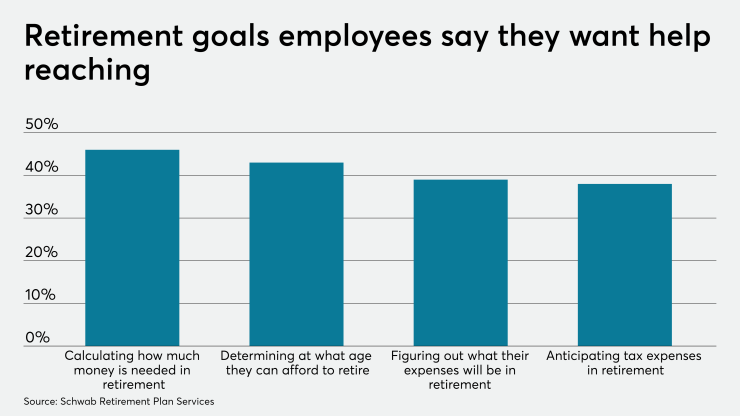Though it's far too early to assess the long-term impact of the coronavirus pandemic on workers' retirement security, early indicators suggest that employers are not abandoning their retirement plans and employees are not cashing out in droves.
It also presents an opportunity for plan advisers and sponsors to redouble their efforts to encourage participation in workplace savings plans, according to Toni Brown, senior vice president of Capital Group's Retirement Strategy Group.
"Given what's going on today, there is a great opportunity for plan sponsors to really highlight the benefit of the retirement plan, and not necessarily saying, 'You have all this money that you could take out,' because we don't want to see that," Brown said during a recent online presentation hosted by the Georgetown University Center for Retirement Initiatives.
"But there really is an opportunity where employees might really see the value of the plans more than they have in the past," Brown said. "And it's an opportunity to engage employees on something positive where there really is a lot of negative news in the world."
The retirement plan provider Ascensus has been tracking activity in the sector since the outbreak of the pandemic, and reports that there has been a significant — if unsurprising — reduction in the level of contributions employees are making to their retirement plans. Ascensus has also seen an uptick in hardship distributions, as millions of Americans suddenly found themselves without a job or working reduced hours, but reports a decline in loans taken out against 401(k) plans.
CEO David Musto said he has seen no significant spike in employers terminating their plans, which could be attributed to the cost of canceling a plan or because the businesses that offer retirement plans as an employee benefit tend to be on surer financial footing than those that don't, and wouldn't be tempted to take such a drastic step. Instead, he said that Ascensus is fielding more inquiries from the employers it serves about tinkering with the structure of their plans to make them more affordable, but little interest in dropping them altogether, which he takes as a hopeful sign.
"It's difficult to imagine that a pandemic and the economic conditions, should they continue to persist, won't have a meaningful impact on small business, on business failures, on plan terminations, on savings reductions, on increasing withdrawal and loans," Musto said. "But for the most part, small business and the American worker are holding up better, I think, than many of us would have imagined."
In Oregon, home of the
Looking ahead, the state is hoping to encourage a conversation about the role of emergency savings, aiming to convince workers to put money away on the twin tracks of retirement and emergency savings, and to resist the temptation to dip into a retirement account when unforeseen expenses or income losses do arise.
"What we really don't want to do is have them look at retirement as emergency savings," said Michael Parker, executive director of the Oregon Saves Network. "We want them to be split so that they have emergency savings and they have retirement savings."
"If they need to obviously they should, but what always worries me is that people take it out and don't put it back in and the loss that you have from not putting it back in until three years later and missing some of the investment results can be very damaging," added Capital Group's Brown.
Kevin Boyles, vice president of workplace savings solutions at Millennium Trust, sees an increasing "savviness" in the workforce about protecting retirement savings, some of which can be attributed to the role that advisors and employers increasingly play in promoting financial literacy and taking an active role when market-rattling events occur.
His experience at his own employer was instructive.
"Where I work, our advisor on our plan was extremely proactive in coming in to the participants in the plan and doing some education around all the ramifications of pulling money out of the 401(k), whether it was a loan or whether it was whatever, because it's not only taking money out of the system so it's not working for you in there, but it's also removing it at a time when it's at a depressed value, so you're taking a double hit," Boyles said. "I think some of that proactive education by the providers and the advisors has done a lot to stave off some of the kneejerk reactions that we maybe would have seen in 2008 that we probably see less of now."






